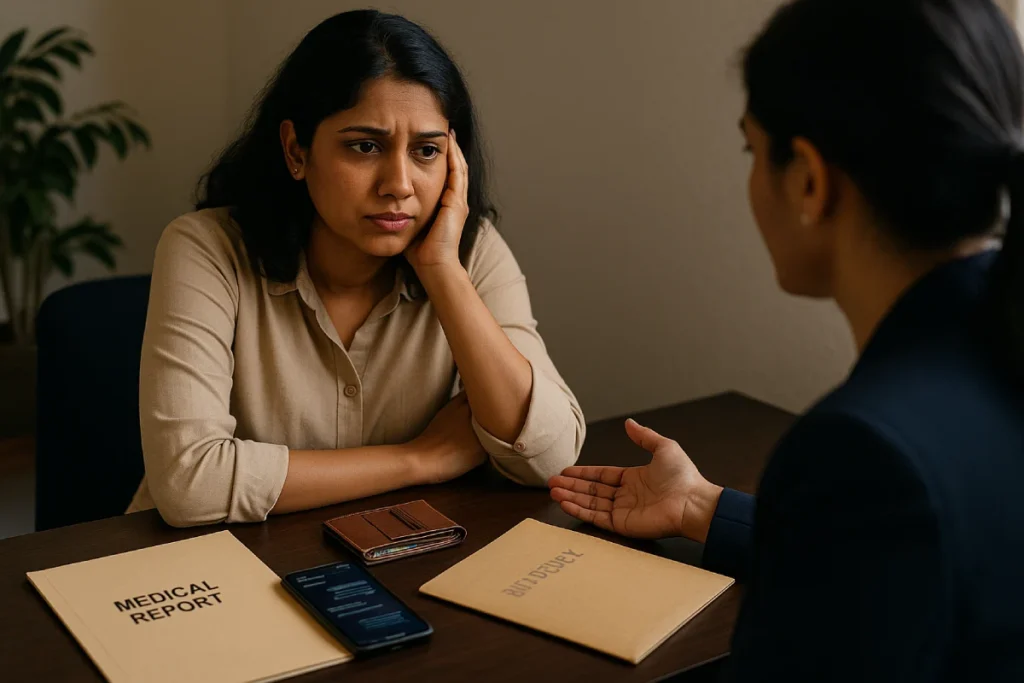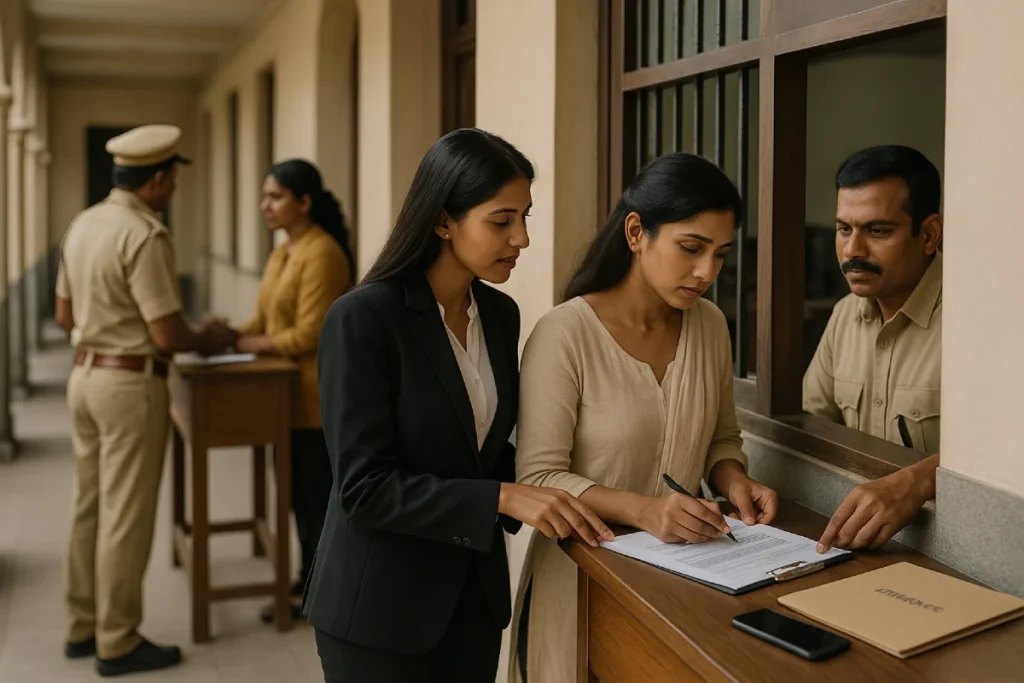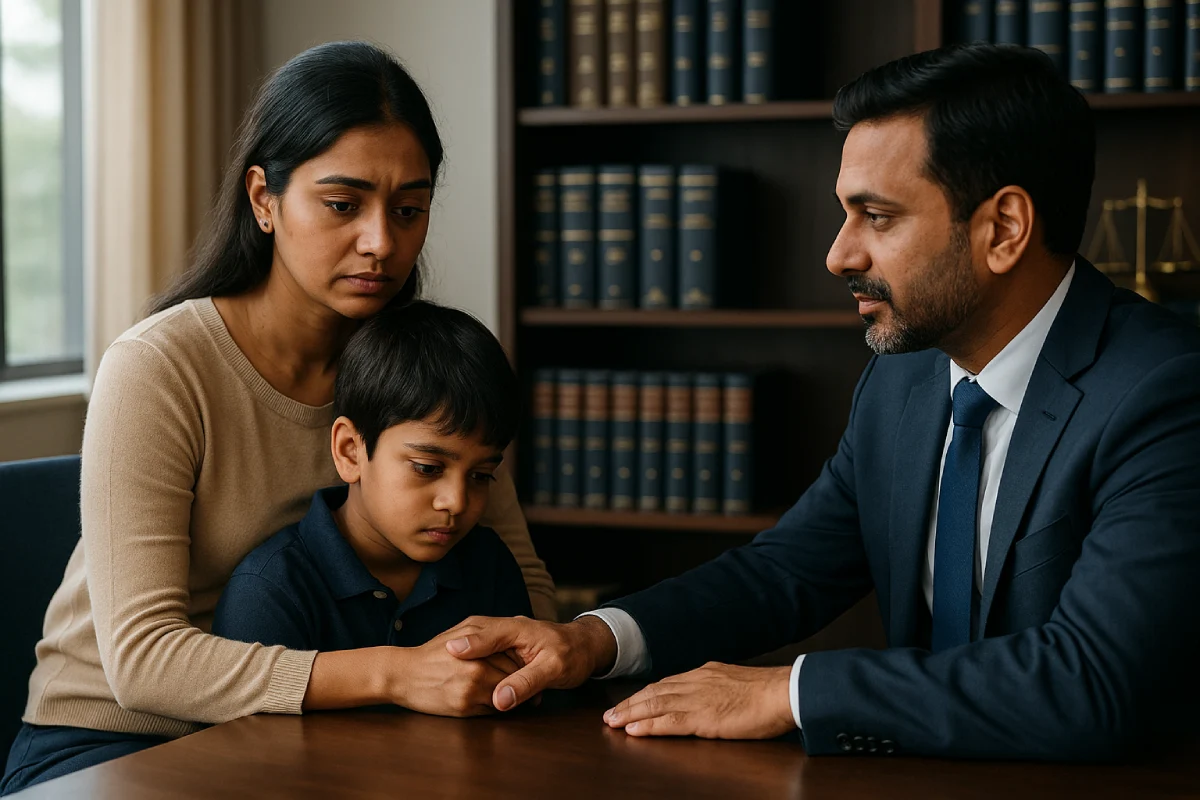Domestic Violence Law in India: Your Rights & Legal Protection
Domestic violence is a silent epidemic that plagues households across all sections of society, leaving deep and lasting scars on its victims. It is a grave violation of human rights, shrouded in silence and societal stigma. Recognising the severity of this issue, India has enacted specific and stringent laws to protect victims and provide a pathway to justice. However, navigating the legal system during such a traumatic time can be overwhelming.
This guide aims to demystify the legal landscape surrounding domestic violence in India. It will provide a clear understanding of your rights, the key legislation in place, and the procedural steps involved in seeking protection and justice. From the civil remedies under the Protection of Women from Domestic Violence Act, 2005, to the criminal actions under the Indian Penal Code (and its new counterpart, the Bharatiya Nyaya Sanhita), this article will serve as your first step towards empowerment and safety. At Kapil Dixit LLP, we believe that knowledge is the first and most crucial tool in the fight against abuse.
What Constitutes Domestic Violence Law in India?
The law in India defines domestic violence comprehensively, recognising that abuse is not just physical. The Protection of Women from Domestic Violence Act, 2005 (PWDVA) provides a broad definition that includes any act, omission, or conduct that harms, injures, or endangers the health, safety, life, limb, or well-being of the aggrieved person.

The scope of domestic violence under Indian law includes:
- Physical Abuse: Any act that causes bodily pain, harm, or danger to life and limb. This includes assault, criminal force, and intimidation.
- Sexual Abuse: Any conduct of a sexual nature that abuses, humiliates, or degrades the dignity of a woman. This includes forced sexual intercourse and other sexual acts.
- Verbal and Emotional Abuse: This includes insults, ridicule, humiliation, name-calling, and threats to cause physical pain to any person in whom the victim is interested. It is a pattern of behaviour designed to destroy a person’s sense of self-worth.
- Economic Abuse: Depriving the victim of financial resources to which she is entitled by law or custom. This includes withholding money for maintaining the victim or her children, disposing of household effects, and preventing the victim from using shared household assets.
It is crucial to understand that a single act can constitute domestic violence, and a victim does not need to show a long history of abuse to seek legal protection.
The Two Pillars of Legal Protection: Civil and Criminal Law
A victim of domestic violence in India has the option to pursue remedies under both civil and criminal law, which can be initiated simultaneously.

1. The Civil Remedy: The Protection of Women from Domestic Violence Act, 2005 (PWDVA)
The PWDVA is a dedicated civil law designed to provide immediate and effective protection to women who are victims of domestic violence. Its primary focus is not on punishing the abuser but on providing relief and safety to the victim.
Key Features of the PWDVA:
- Who can file a complaint? Any woman (the “aggrieved person”) who is, or has been, in a domestic relationship with the abuser (the “respondent”) can seek relief. This includes wives, mothers, sisters, daughters, and women in live-in relationships.
- Against whom can a complaint be filed? A complaint can be filed against any adult male person who has been in a domestic relationship with the victim. It can also be filed against relatives of the husband or the male partner.
- Quasi-Criminal Nature: While it is a civil law, the procedure has elements of criminal law to ensure swiftness. The proceedings are heard by a Magistrate.
Types of Relief Available under the PWDVA:
The true power of the PWDVA lies in the wide range of orders a Magistrate can pass to protect the victim:
- Protection Orders: Prohibiting the abuser from committing any act of domestic violence, aiding or abetting in it, entering the victim’s place of work or residence, and communicating with the victim in any form.
- Residence Orders: The victim cannot be evicted from the “shared household.” The court can also order the abuser to remove themselves from the shared household or provide alternative accommodation for the victim.
- Monetary Relief: Directing the abuser to pay for the expenses incurred and losses suffered by the victim and any child, including medical expenses, loss of earnings, and property damage.
- Custody Orders: Granting temporary custody of any child or children to the victim.
- Compensation Orders: Directing the abuser to pay compensation and damages for the injuries, including mental torture and emotional distress, caused by the acts of domestic violence.
2. The Criminal Remedy: Indian Penal Code (IPC) and the Bharatiya Nyaya Sanhita (BNS)
While the PWDVA provides for protection and maintenance, the criminal law aims to punish the abuser for their actions.
- Section 498A of the Indian Penal Code (IPC): This has been the primary provision under which criminal action is taken. It deals with cruelty by a husband or his relatives towards a wife. “Cruelty” is defined as any willful conduct likely to drive the woman to suicide or cause grave injury or danger to her life, limb, or health (mental or physical).
- Bharatiya Nyaya Sanhita, 2023 (BNS): The BNS is set to replace the IPC. The provisions of Section 498A have been retained and are now found under Section 84 of the BNS. The essence of the law remains the same, ensuring that this crucial protection against cruelty continues in the new legal framework.
Filing a criminal case under these sections can lead to the arrest of the accused and, upon conviction, imprisonment for up to three years and a fine.
Navigating the System: Procedural Law under CrPC and BNSS
Understanding the procedure is key to accessing justice. The Code of Criminal Procedure, 1973 (CrPC) has historically laid down these procedures, which will now be governed by the Bharatiya Nagarik Suraksha Sanhita, 2023 (BNSS).
How to Initiate a Case:
- Contacting the Police: The first step is often to approach the police. You can file a First Information Report (FIR) under Section 498A of the IPC (or Section 84 of the BNS). The police are obligated to register the FIR for a cognizable offence.
- Approaching the Protection Officer: Under the PWDVA, every state government appoints Protection Officers. A victim can approach a Protection Officer to file a Domestic Incident Report (DIR) and an application for relief before a Magistrate.
- Directly Approaching the Court: A victim, with the help of a lawyer, can directly file an application under the PWDVA before the Magistrate.
The BNSS aims to streamline these procedures, introducing measures like mandatory audio-video recording of statements and timelines for investigations, which can help in making the process more efficient and transparent for the victim. For instance, the BNSS mandates the completion of the investigation in cognizable offences within a specific timeframe, which can help in expediting justice.
The Importance of a Skilled Family Lawyer

The emotional and psychological toll of domestic violence is immense. During such a crisis, having a compassionate and experienced family lawyer is invaluable. The legal process involves intricate details, from drafting petitions and gathering evidence to representing you effectively in court.
A lawyer from Kapil Dixit LLP can:
- Provide a Safe and Confidential Consultation: Offer a space where you can share your experience without judgment.
- Explain Your Legal Options: Clearly outline the pros and cons of pursuing civil and criminal remedies.
- Handle All Legal Formalities: Meticulously draft and file all necessary legal documents, ensuring no procedural errors.
- Represent You in Court: Act as your strong advocate before the Magistrate or Judge, fighting to secure the protection and relief you are entitled to.
- Guide You Through the Entire Process: Provide support and guidance at every step, from filing the case to ensuring the court’s orders are enforced.
Frequently Asked Questions (FAQs)
Can I file for divorce and a domestic violence case at the same time?
Yes, you can. The proceedings under the PWDVA are separate from divorce proceedings. You can seek protection and maintenance under the PWDVA while your divorce case is ongoing in a Family Court.
What is a “shared household”? Can my husband throw me out of his parents’ house?
A “shared household” is where the victim lives or has lived in a domestic relationship. This includes a house owned or tenanted by the husband, or a house belonging to the joint family of which the husband is a member. You cannot be legally evicted from a shared household without due process of law. A residence order under the PWDVA can protect your right to live there.
What evidence do I need to prove domestic violence?
Evidence can include medical reports in case of physical injury, photographs, emails, text messages, or any other form of communication that proves harassment or abuse. The testimony of the victim is a crucial piece of evidence. Witnesses like friends, family, or neighbours can also support your case.
Will the abuser be immediately arrested if I file a PWDVA case?
No. The PWDVA is a civil law, and its primary aim is protection, not immediate arrest. Arrest is typically associated with a criminal case filed under the IPC/BNS (e.g., Section 498A). However, if the abuser violates a protection order passed under the PWDVA, it becomes a criminal offence for which they can be arrested.
I am not married to my partner, but we live together. Can I file a domestic violence case?
Yes. The PWDVA extends its protection to women in relationships “in the nature of marriage” (live-in relationships). You have the same rights to seek protection and relief as a married woman.
Take the First Step Towards a Life Free from Fear
Domestic violence thrives in silence. Breaking that silence is the first and most courageous step towards reclaiming your life. The law is your ally, designed to provide you with safety, security, and justice. You do not have to endure abuse.
If you or someone you know is a victim of domestic violence, it is critical to seek legal help immediately. The right guidance can empower you to use the law effectively to protect yourself and your children.
Your safety and dignity are non-negotiable. Contact Kapil Dixit LLP today for a confidential and compassionate legal consultation. Our team of expert family lawyers is dedicated to helping you navigate the legal system and secure a future free from violence. We offer both in-person and online consultations to ensure you get the help you need, wherever you are.


